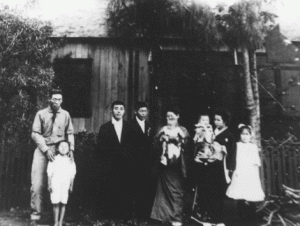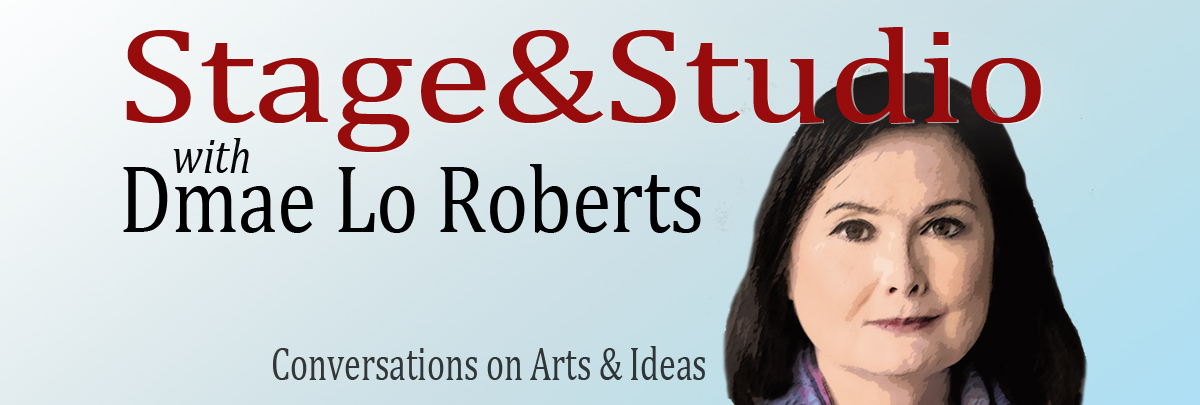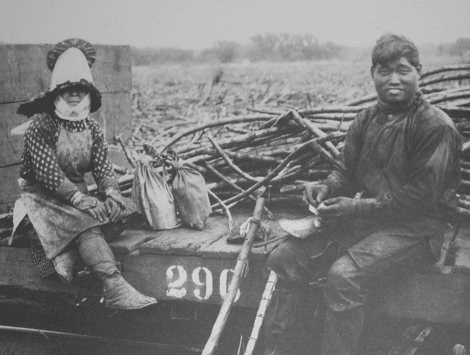Raising Cane: Hawaii’s Labor & Resistance
Stage & Studio presents a special documentary from the “Crossing East” Asian Pacific American history series, winner of the 1996 Peabody award. This is excerpted from the “Raising Cane” segment by Robynn Takayama and Dmae Roberts. For more info on the series visit: http://crossingeast.org
PART ONE: “Hard Labor” narrated by Dann Seki.
First they used Hawaiian labor on the plantations. But it was Hawaiian tradition to work only to meet immediate needs. So there was no year-round workforce. By 1850, the sugar industry exploded. Plantations needed cheap labor. Fast. The first workers came from China. Then Japan, Korea, the Philippines… The laborers had hopes of making money quickly and returning home. Raising Cane was backbreaking work and the pay was meager. Men who came to Hawaii had big dreams.  They thought they would strike it rich.  But the reality of plantation life was so different from what they were told by recruiters.
Podcast: Play in new window | Download
[to download this episode right click over the link. For Mac use ‘control’ &’save as’]
PART TWO: “Picture Brides” narrated by Chisao Hata.
In 1900, the plantations were bachelor societies. Some men married native Hawaiian women. Wealthier men returned home to find brides. A 1907 law, The Gentleman’s Agreement, allowed only family members to immigrate. So many Japanese, Okinawan, and Korean men asked their families to help arrange a marriage across the ocean.
PART THREE: “Resistance” narrated by Dann SekiÂ
In the 20th century, workers began to demand higher wages. Though vulnerable to exploitation, workers slowly gained strength through both individual and collective action. Organized protests began along ethnic lines in the early 1900s. Plantation owners exploited racial differences. They pitted workers against each other. Workers needed higher wages to support their families and a new strategy to beat the plantation system. In 1946, they organized the first multi-ethnic strike led by the International Longshoremen’s and Warehousemen’s Union. The “Great Sugar Strike,†transformed Hawaii’s plantation society. With a union victory, Hawaii’s sugar workers became the highest paid agricultural workers in the world. But the building blocks of this movement began many years earlier.
Voices heard:
Gaylord Kubota, Domingo Los Banos, Espy Garcia, Ah Quon McElrath, Barbara Kawakami, Alma Ogata, Fuzzy Alboro, George Fujiwara, May Fujiwara, Jon Arisumi. Moses Pataki, and Richard Nagame. Scholars Ronald Takaki, Franklin Odo, Bill Puette, William Boylan, Lee Tonouchi, Kent Sakoda and Jeffrey Siegel. Actors Dann Seki, Chisao Hata, Denise Aoki Chinen, and Keith Kashiwada. Hole Hole Bushi songs were sung by Shigeko Miyashiro.
Produced by Robynn Takayama and Dmae Roberts
More info:Â http://crossingeast.org/programthree.htm
Music: Ledward Kaapana, Master Slack Key Guitarist records on the “Rhythm & Roots” Record Label. To purchase his CDs email kahokuproductions@yahoo.com. For more information on the Annual Hawaiian Slack Key Guitar Festivals (Maui, Molokai, Oahu, Hawaii, Kauai), please visit hawaiianslackkeyguitarfestivals.com or email kahokuproductions@yahoo.com or phone (808) 226-2697. ledkaapana.com.
______________________________________________________________
You can hear Stage & Studio on:
- the KBOO website and on 90.7FM live at 11am on Tuesdays
- Saturdays 11am on KZME, 107.1FM
- Don’t want to miss a single
- episode? Subscribe to Stage & Studio On iTunes!
- And always on the official Stage & Studio website!


